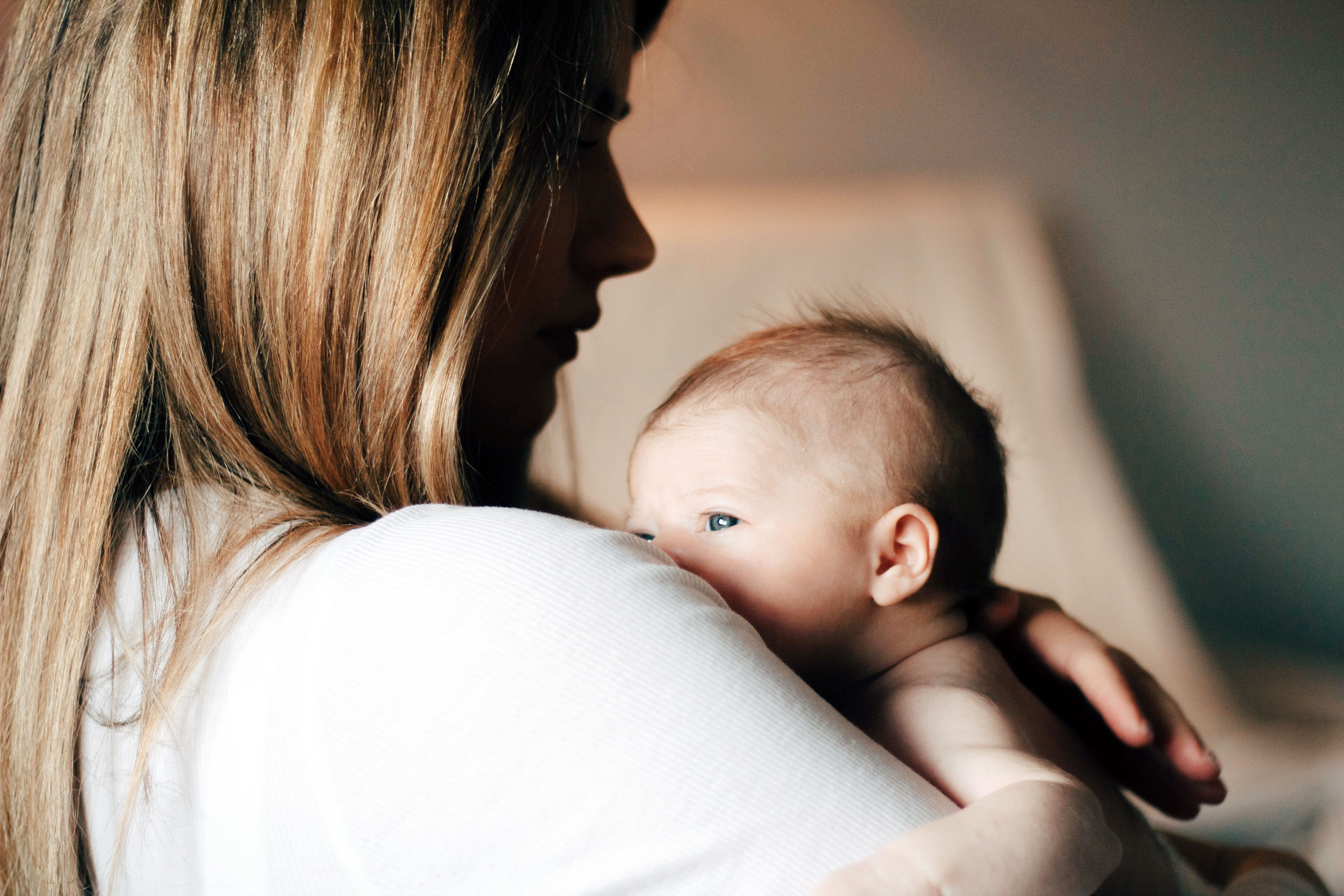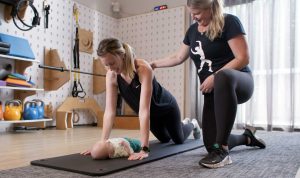During pregnancy, many changes are occurring in your body, including an increase in abdominal diameter and weight in your pelvic floor due to the growing baby. These changes could affect your abdominal muscle strength and your pelvic floor muscle endurance and coordination despite the mode of delivery.
What symptoms might you have after birth?
The most common symptoms after a vaginal or cesarean delivery are:
- Urine leakage: having involuntary loss of urine when you cough, sneeze, or lift your baby, etc. This is called stress urinary incontinence (SUI) and it can range from a single drop of urine to a full gush. Also, not making it to the toilet and having some drops of urine before you sit down is considered urge urinary incontinence (UUI).
- Vaginal heaviness: feeling like a badly-positioned tampon is inside your vagina or the sensation of something coming out or a bulge is a symptom of pelvic organ prolapse (POP). This is more likely to happen after having an instrumental birth (such as forceps delivery) or giving birth to a baby weighing more than 4kg.
- Pain during intimacy: having stitches, either in your abdomen or perineum (vulva or vagina area) can leave this area more sensitive than before. Hence, you might experience discomfort, or even pain, while being intimate with your partner.
How can this impact your life?
- Returning to exercise or work: some women find it difficult to return to their preferred sports, especially if they include jumping and running, as they leak during their training sessions or games. Also, women who have to lift weights at work find it hard to return to their usual roles.
- Relationships: experiencing vaginal heaviness or pain during sexual intercourse can be very challenging and results in some women avoiding intimacy with their partners. This can put pressure on a relationship or how couples interact with one another.
How can a Women’s Health Physiotherapist help you?
Just as you would go to a physiotherapist for rehabilitation of any other muscle weaknesses and pain, you can visit a women’s health physiotherapist who has further training in women’s health issues.
Some things that a Women’s Health Physiotherapist can help you with, include:
- Identifying if there has been any perineal trauma, such as tears or muscle detachment, and tailor a specific exercise program for your pelvic floor muscles.
- Assessing abdominal separation and abdominal strength to guide you on your way back to fitness classes.
- Treating any painful areas including scars from perineal stitches or abdominal stitches, and soreness/stiffness of the neck or back from feeding or carrying your baby.
- Helping you with self-management strategies.
- Helping you reach your fitness goals.
The economic cost of pregnancy and childbirth can be significant. However, what is being recognised (and thankfully discussed) more and more by new mums, is the long-term financial and personal costs that can result from a delayed return to work, exercise, or intimacy due to the changes that many women experience following childbirth.
To encourage new mums to take positive action towards recovery after childbirth, The Body Refinery (located in New Farm) has created a Postnatal Pack that makes visiting a Women’s Health Physiotherapist more affordable and accessible to all Brisbane women; including 1 initial assessment, 1 one-on-one Exercise Physiology session and 5 pre/postnatal classes.
Written by Women’s Health Physiotherapist, Pilar.




